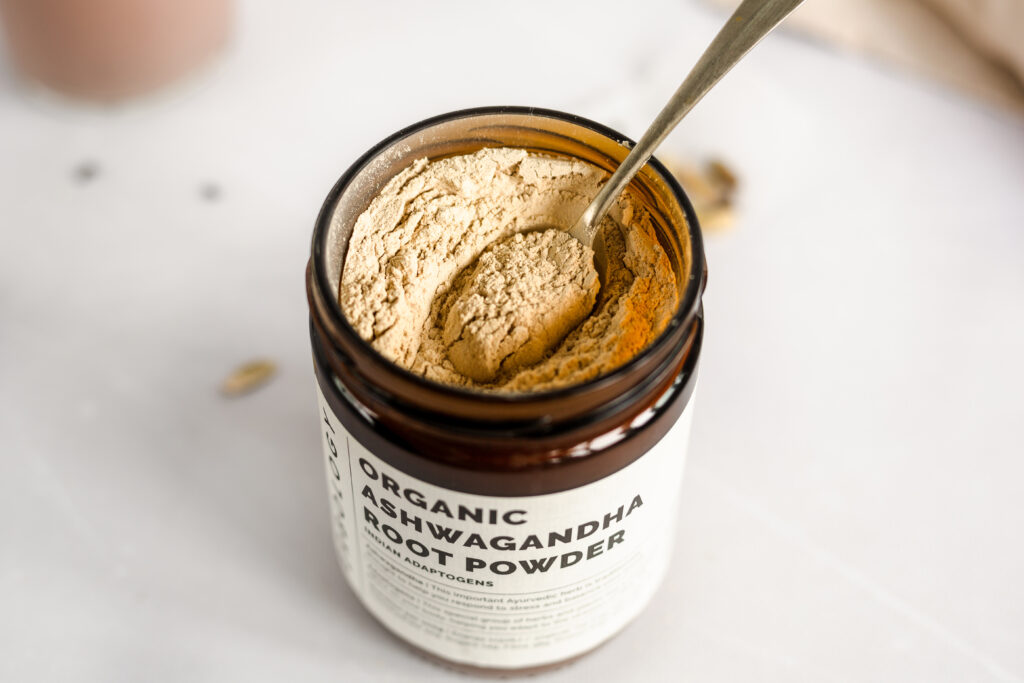
Hormones play a key role in ensuring that our bodies function the way that they should. However, when we have too much or too little of them, it may lead to hormonal imbalance. This can have a number of negative impacts on our health and wellbeing. In this post, we take a look at some signs of hormonal imbalance and what might be causing it. We've also got some top tips for how to treat hormonal imbalance with simple lifestyle changes.
February 22, 2023 6:17 pm February 22, 2023 1:00 amWhat are hormones?
Before we talk about hormonal imbalance, it will be useful to have a clearer picture of exactly what hormones are. Basically, hormones are chemical messengers within our bodies. They’re produced and released into the bloodstream by glands in the endocrine system, such as the thyroid and pituitary gland. From there, they travel to organs and tissues all around the body, telling them what to do and when.
Hormones are vital for regulating almost all the processes that occur within our bodies. That includes metabolism, appetite, sleep, mood, blood sugar, growth, and reproductive cycles. So, for example, insulin is a hormone made in the pancreas that helps balance levels of glucose in the blood. And the pineal gland releases a hormone called melatonin at night to encourage sleep.
Normally, the endocrine system effectively maintains a delicate balance between all these different hormones to keep our bodies functioning healthily. However, it only takes a minor change to disrupt this. That’s when you get a hormonal imbalance.
What is a hormonal imbalance?
Not all changes in hormone levels are bad. For instance, a woman’s levels of oestrogen and progesterone naturally fluctuate every month as part of the menstrual cycle. Other hormones may vary depending on the time of day, or the stage of life you’re in.
A hormonal imbalance, on the other hand, is when you have too little or too much of a certain hormone. This can cause a series of knock-on effects in the body, depending on which specific hormones are out of balance.
We have a lot of different hormones in our bodies, and they’re responsible for a wide variety of functions. As such, the possible signs of hormonal imbalance are broad. There’s also not one single test available to diagnose a hormonal imbalance. Instead, doctors need to do blood and urine tests to check your levels of certain individual hormones. In some cases, other diagnostic tests such as ultrasounds and MRIs may be required.
What causes hormonal imbalance?
The endocrine system is extremely complex, and there’s no one underlying cause of hormonal imbalance. Depending on which gland or hormone is affected, there are many possible reasons why they might get out of balance. This includes medical conditions, environmental factors, and lifestyle habits. We’ve listed some of the most common causes of hormonal imbalance below.
Medical causes of hormonal imbalance
- Eating disorders (e.g., anorexia)
- Hyperthyroidism (an overactive thyroid)
- Hypothyroidism (an underactive thyroid)
- Diabetes (affects the production of insulin)
- Addison’s disease (when the adrenal glands don’t produce enough cortisol and aldosterone)
- Cushing’s syndrome (abnormally high levels of cortisol)
- Cancerous and benign tumours
- Treatments for cancer, such as chemotherapy
- Some medications
- Hormone therapies and birth control pills
- Hypogonadism (low levels of sex hormones)
- Polycystic ovary syndrome (PCOS)
- Some types of injury or trauma
Hormonal imbalance is also more common during certain periods of your life. These include puberty, pregnancy, and the menopause. Similarly, women may experience temporary hormonal imbalance during different phases of the menstrual cycle.
Lifestyle causes of hormonal imbalance
- Chronic stress
- Lack of sleep
- Being overweight or obese
- Doing too much or too little exercise
- Eating a poor diet or not taking in enough nutrients
- Being exposed to toxins in the environment
- Misuse of some types of steroids
- Drinking excessive amounts of alcohol
What are the signs of hormonal imbalance?
The specific hormonal imbalance symptoms a person experiences will vary depending on exactly which hormone or gland is affected. The signs of hormonal imbalance can also differ according to factors such as your gender and age. Some of the most common hormonal imbalance symptoms include:
- Weight gain
- Weight loss
- Fatigue
- Headaches
- Changes in heart rate
- Sweating
- Night sweats
- Hot flushes
- Joint pain, stiffness, or swelling
- Muscle aches, stiffness, and tenderness
- Loss of muscle mass
- Loss of bone mass
- Increased hunger or thirst
- Decreased sex drive
- Pain during sex
- Vaginal dryness
- Erectile dysfunction
- Infertility
- Constipation
- Diarrhoea
- Depression
- Anxiety
- Irritability
- Difficulty concentrating
- Dry skin
- Oily skin
- Acne
- Rashes
- A puffy or rounded face
- Thinning or brittle hair
- Hair loss
- Excessive hair growth
- Blurred vision
- Trouble sleeping
- Irregular menstrual cycle or changes to your periods
- Development of breast tissue in men
As you can see, this is an extremely varied list with symptoms that have a wide range of potential causes. It also includes some contradictory symptoms, such as weight loss and weight gain. This is partly why it can be tricky to ascertain whether hormonal imbalance is behind what you’re experiencing or not.
If you suspect that you might have a hormonal imbalance, it’s best to visit a doctor so they can conduct diagnostic tests. Depending on the specific hormone that’s out of balance, they may recommend a treatment such as hormone replacement therapy (HRT).
However, if you’re wondering how to treat hormonal imbalance more naturally, there are some options you can try. Let’s take a closer look at some of the most effective techniques.
Related reading
"Our hormones influence almost every aspect of our wellbeing, so it's important that we do what we can to avoid hormonal imbalance and keep our endocrine system healthy."
What are some natural remedies for hormonal imbalance?
When thinking about how to treat hormonal imbalance, there are lots of simple but valuable lifestyle changes you could make. These can work to help keep your hormones balanced, or to address an existing hormonal imbalance you may have. For the best chances of success, try to implement as many of the following suggestions as you reasonably can.
Eat a healthy diet
A nutritious diet is important for all sorts of health reasons, but it’s also key for helping balance your hormones. For instance, consuming healthy fats may help to reduce levels of the stress hormone cortisol.(1) Avocados, hemp seeds, and nuts such as almonds and walnuts are all fantastic sources of good fats.
It’s also important to ensure you’re getting sufficient essential amino acids, as these are vital for us to produce hormones. Complete sources, which contain all nine essential amino acids, include amaranth, tofu, chia seeds and quinoa.
Turning to minerals and vitamins for hormonal imbalance, there are a few you want to focus on. In particular, magnesium and B vitamins can help to counter some of the symptoms you might be experiencing. Almonds, avocados and spinach are all rich in magnesium, while leafy greens, legumes and seeds are bursting with B vitamins.
Conversely, it’s advisable to avoid consuming too much sugar, as excessive amounts can decrease your insulin sensitivity. It may also reduce the production of, and raise your resistance to, leptin.(2) Leptin is a hormone which makes you feel full and helps regulate how much fat we store in our bodies. A diet high in fibre, on the other hand, can increase the production of satiety hormones.(3)
Lastly, there are certain foods you can choose to help boost levels of specific hormones. As an example, foods like sunflower seeds which are rich in vitamin B6 may help increase progesterone. Meanwhile, those high in phytoestrogens – like soy products – could work to raise levels of oestrogen.
Give adaptogens a go
As well as eating healthily in general, you could try harnessing the power of plants to counter hormonal imbalance. And one of the most effective ways to do this is with adaptogens. These are substances that can help to increase the body’s resistance to stress and reduce its harmful effects on us. This includes countering hormonal imbalances that impact our nervous system.
For example, studies indicate that ashwagandha could work to lower levels of cortisol and decrease feelings of stress.(4) Likewise, it may help to treat hypothyroidism, correcting the imbalance in thyroid hormone.(5)
Another key adaptogen to be aware of is curcumin, the main active ingredient in turmeric. Research suggests that it may be able to combat decreases in the growth hormone BDNF (brain-derived neurotrophic factor).(6) Studies have linked low levels of BDNF with age-related cognitive decline and conditions such as Alzheimer’s. So that’s definitely a hormonal imbalance you want to avoid!
Look after your gut health
The health of our gut microbiome – or the collection of microorganisms living inside your gut – significantly impacts our overall wellbeing. It can affect everything from our immune system to our nervous system, and also has an influence on our hormones.
For instance, having higher levels of good bacteria in your gut can be beneficial for insulin resistance.(7) It may additionally help to regulate feelings of satiety by increasing the amount of fullness hormones.
One of the best ways to care for your gut is to eat a diverse diet that’s rich in fibre. In addition, experts believe that foods high in plant compounds known as polyphenols can stimulate the growth of good bacteria.(8) Fermented foods, such as kimchi and sauerkraut, are also great choices.
Prioritise your sleep
By now, most of us understand that getting a good night’s sleep is critical for things like mood and productivity. However, did you know it’s also important for preventing hormonal imbalance? In fact, studies suggest that sleep deprivation and poor-quality sleep can result in several different types of hormonal imbalance.
Firstly, research shows that a lack of sleep can increase levels of ghrelin, a hormone that makes us feel hungry. It also reduces levels of leptin. Combined, this can lead to an increased risk of weight gain and its associated negative impacts on our health.(9)
Moreover, sleep deprivation can cause a rise in levels of the stress hormone cortisol.(10) This may result in several harmful signs of hormonal imbalance, such as inflammation, irritability, and a weakened immune system.
To avoid or correct hormonal imbalance, try to aim for 7-9 hours of good-quality shuteye a night. Don’t worry if this is something you struggle with, as we have a whole article on what to do if you can’t sleep!
Get regular exercise
There are a wealth of reasons why it’s important to stay active, one of which is to prevent hormonal imbalance. Exercise can do this in many different ways.
For instance, it can make our hormone receptors more sensitive, enhancing the delivery of hormone signals.(11) Furthermore, physical activity can both reduce levels of insulin and boost insulin sensitivity.(12) This is important because studies have linked insulin resistance with conditions such as diabetes and heart disease.
Research also shows that regular exercise could help to increase levels of muscle-maintaining hormones that tend to decrease with age. That includes testosterone and human growth hormone.
Finally, staying active can additionally work to lower levels of cortisol and adrenaline. On top of which it stimulates the production of endorphins, which are hormones that relieve pain and boost your mood.(13) It’s ok if you’re not a fan of the gym – even gentle exercise like walking and yoga is beneficial!
Manage your stress levels
Stress is a common cause of hormonal imbalance, and can affect almost every hormone in our body.
When a perceived threat triggers our fight-or-flight response, it causes an increase in cortisol and other glucocorticoids. Chronic stress impairs the feedback systems that tell your body to return its hormonal levels to normal. This can mean that your cortisol levels remain elevated even when there’s no threat to respond to. In turn, that can lead to several signs of hormonal imbalance, such as metabolic disorders and depression.
As such, taking steps to cope with stress in a healthy way is vital for countering hormonal imbalance. Some of the most effective techniques include:
- Meditation
- Breathing exercises
- Mindfulness practices
- Listening to calming music
- Journaling
- Yoga
- Spending quality time with friends and family
- Engaging in creative hobbies such as art and music
The final verdict on hormonal imbalance
There are lots of different factors that can cause hormonal imbalance, and plenty of unwanted symptoms it may lead to. Therefore, if you’re concerned that you might have a hormonal imbalance, it’s best to see a doctor. They’ll be able to conduct some diagnostic tests and offer advice on potential treatment options. You can also use the suggestions above to help bring your hormones back into balance and ease your symptoms.
Our hormones influence almost every aspect of our wellbeing. As such, it’s important for all of us to do what we can to keep our endocrine system healthy!
Related reading
Latest articles
References
- Omega-3-polyunsaturated fatty acids (O3PUFAs), compared to placebo, reduced symptoms of occupational burnout and lowered morning cortisol secretion Psychoneuroendocrinology, 2019.
- Prevention and reversal of diet-induced leptin resistance with a sugar-free diet despite high fat content British Journal of Nutrition, 2011.
- Soluble dietary fiber (Fibersol-2) decreased hunger and increased satiety hormones in humans when ingested with a meal Nutrition Research, 2015.
- Effects of Withania somnifera (Ashwagandha) on Stress and the Stress-Related Neuropsychiatric Disorders Anxiety, Depression, and Insomnia Current Neuropharmacology, 2021.
- Efficacy and Safety of Ashwagandha Root Extract in Subclinical Hypothyroid Patients: A Double-Blind, Randomized Placebo-Controlled Trial Journal of Alternative and Complementary Medicine, 2015.
- Curcumin reverses the effects of chronic stress on behavior, the HPA axis, BDNF expression and phosphorylation of CREB Brain Research, 2006.
- Gut microbiome and its role in obesity and insulin resistance Annals of the New York Academy of Sciences, 2020.
- Benefits of polyphenols on gut microbiota and implications in human health The Journal of Nutritional Biochemistry, 2013.
- Sleep deprivation and obesity in adults: a brief narrative review BMJ Open Sport & Exercise Medicine, 2018.
- Sleep deprivation and stress: a reciprocal relationship Interface Focus, 2020.
- Defining meal requirements for protein to optimize metabolic roles of amino acids The American Journal of Clinical Nutrition, 2015.
- Exercise and Insulin Resistance Advances in Experimental Medicine and Biology, 2020.
- Exercising to relax Harvard Health Blog, 2020.







Comments (0)